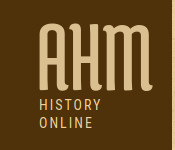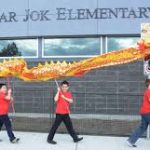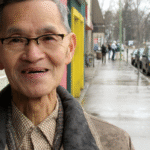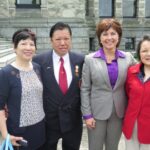Asian heritage display tells the personal stories
Originally posted on Kelowna Courier: Contributed May 4, 2014; Updated May 5, 2014
See the original article here.
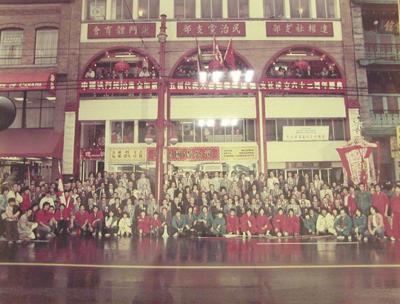
In honour of this year’s Asian Heritage Month, the Okanagan Heritage Museum will showcase a history exhibition about Asian-Canadians throughout May.
This exhibition will display a diversity of stories depicting the personal experiences and
societal contributions of Asian-Canadian
elders and community members in the Okanagan Valley.
“The history exhibition is an important part of Asian Heritage Month,” said Dr. Qiang-Hua Meng, chair of the 2014 Asian Heritage Month Committee. “It explores stories about the past in order to connect with the present. Such stories can inspire our hearts and minds. I encourage everyone to visit the museum.”
The history exhibition is meant to take participants beyond dry statistics and detached facts, and engage their attention through intimate stories of Asian-Canadian experiences,
accomplishments, and hopes.
One story featured at the Okanagan Heritage Museum will be that of Shui Tung Lee, a fifth-generation Chinese-Canadian and president of the Kelowna branch of the Chinese Freemason Club. His great-great-grandfather, Yick Wai Lee came to Canada in 1904 to work as a labourer on the Canadian Pacific rail wharf in Kelowna.
After the wharf was completed in 1914, Yick Lee paid the $500 Chinese Head Tax to continue working in Kelowna and supporting his family back in China.
However, as the average wage for a Chinese worker was only about $1.25 per day, Yick Lee, like many other Chinese-Canadians, could not afford the Head Taxes necessary to bring his family to Canada.
The Chinese Exclusion Act of 1923, moreover, banned Chinese immigration to Canada. Yick Lee was subsequently separated from his family until after 1947, when the Act was repealed.
Shui Lee clarifies that Yick Lee was in many ways fortunate: he lived to be reunited with his family, whereas many Chinese-Canadians died before they had the chance.
Shui Lee explained that his great-great-grandfather was the first of his family to join the Chinese Freemason Club, which was established in Kelowna in 1916. The Freemason Club served as an important institution to early Chinese-Canadians, as it provided much needed social, emotional, and financial support.
Today, the Chinese Freemason Club continues to offer services, such as Chinese
language, martial arts, and dance classes.
When questioned about the past, Shui Lee replies, “It was a tough time, but we made it.”
To younger generations of Asian-Canadians, he advises they should learn the Western way of life, but also preserve their Asian heritage.
“When you think about your history,” he says, “you can appreciate who you are.”
As a long-standing and prominent member of Kelowna society, Shui Lee has made several contributions to the community. In 2005, he organized a team of volunteer Chinese-Canadians to fight a forest fire in Kelowna. He also played an instrumental role in assembling a group of Chinese-Canadian actors to participate in the 2008 TV mini-series, Iron Road.
He says he is “proud to be Canadian and proud to be Chinese.”
For more information about Asian Heritage Month, visit asianheritage.ca.
